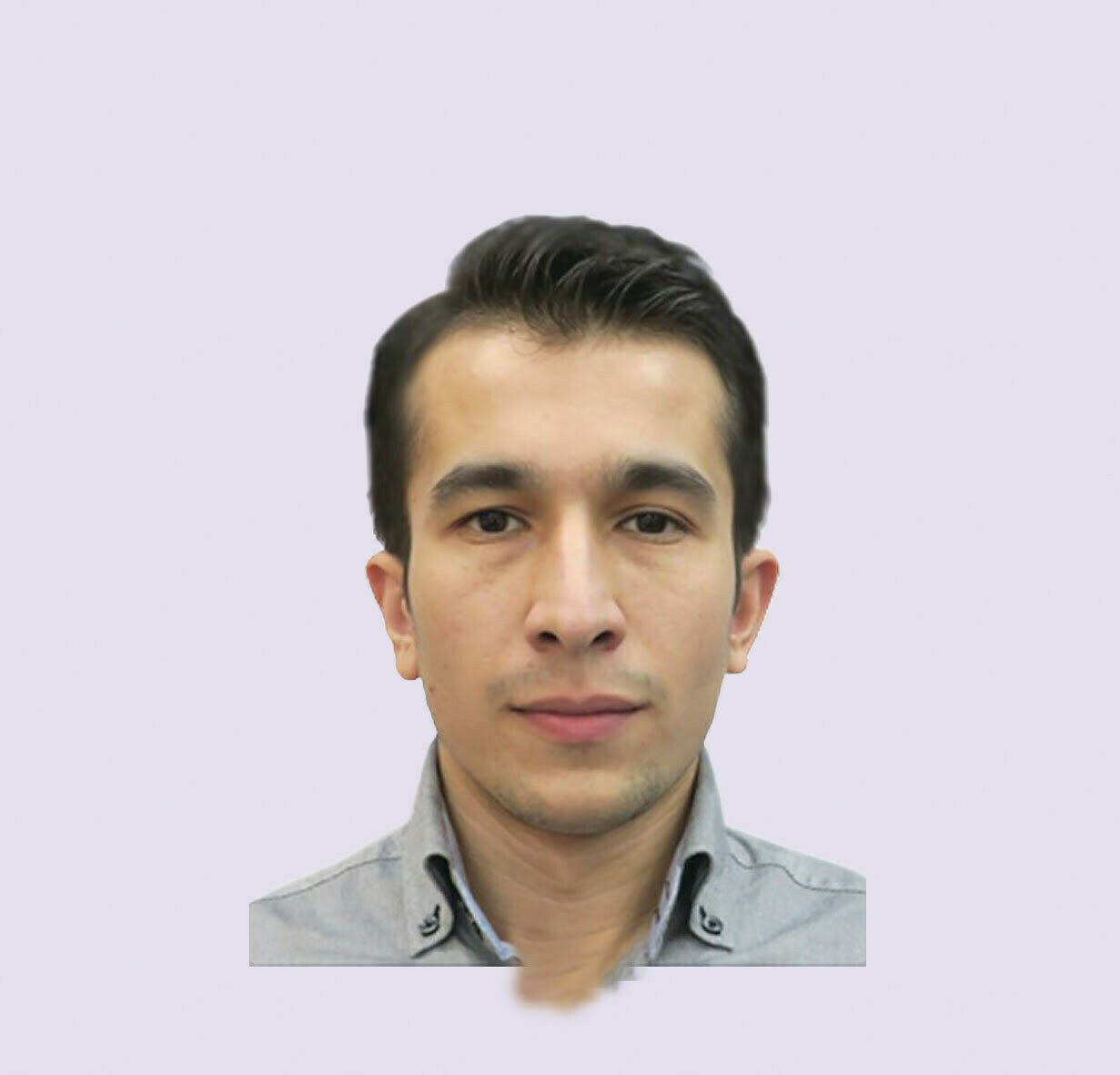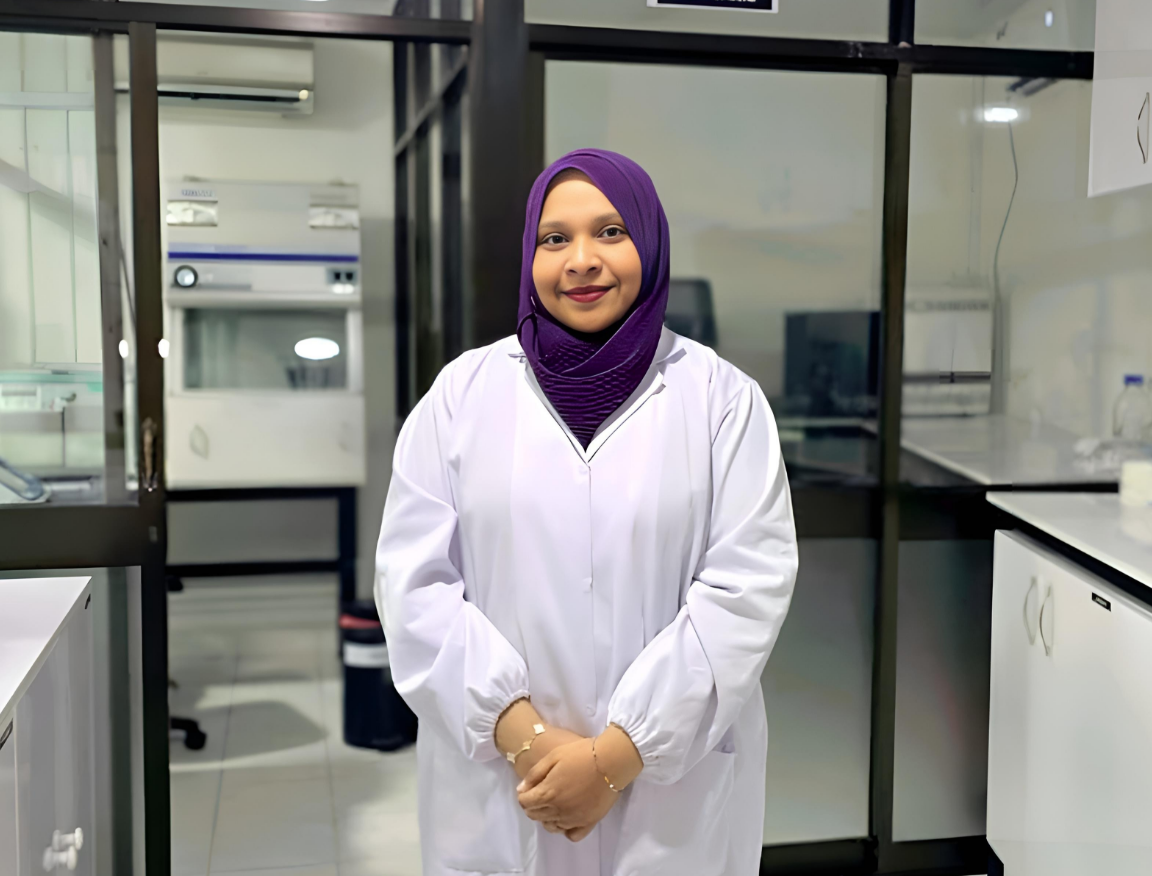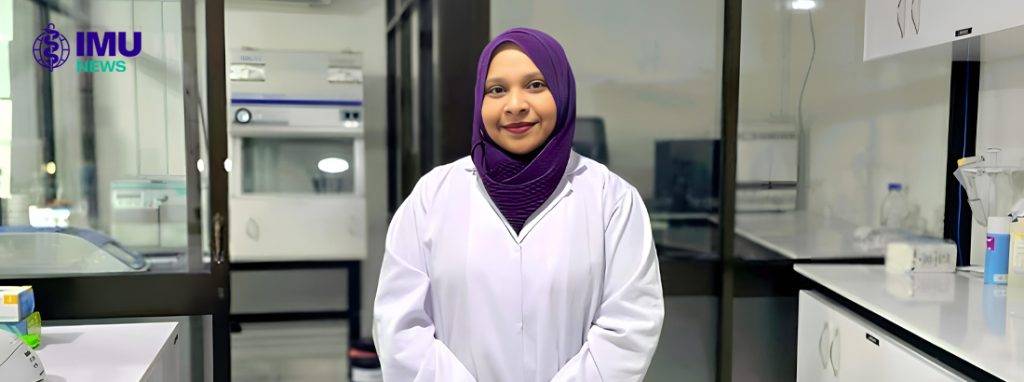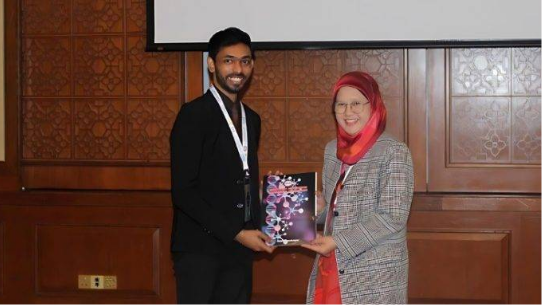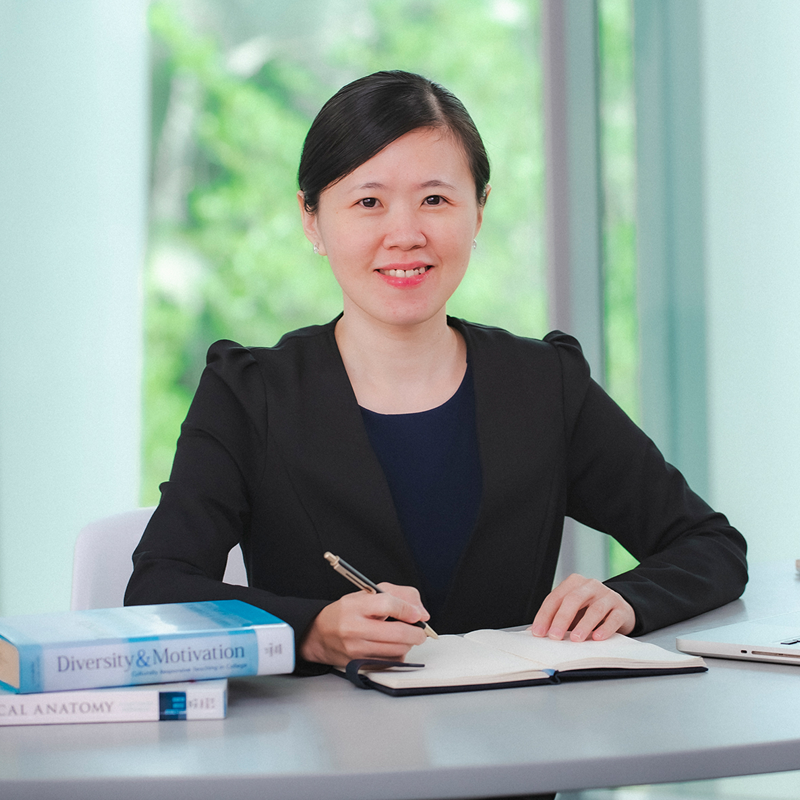Master of Science in Molecular Medicine
KPT/IPT(R2/545/7/0078/07/2027 | MQA/FA1299
KPT/IPTIN-DL/545/7/0101)09/2025 | MQA/SWA11357
Commencement
Mar, Sep & Nov
Degree/Duration
Master of Science in Molecular Medicine:
1 year (Full-time)
2 – 6 years (Part-time)
Master of Science in Molecular Medicine + MSc in Genomic Medicine (QMUL):
2 years (Full-time)
4 years (Part-time)
Elevate Medicine at the Molecular Level

Molecular Medicine stands at the forefront of modern medical research, driving advancements in disease diagnosis, management, and treatment. Our programme is designed to empower you with essential skills and advanced training in molecular and disease-oriented research. Guided by our esteemed faculty experts in molecular sciences, you will embark on a journey of exploration, utilising IMU's state- of-the-art facilities to facilitate comprehensive research investigations.
Why Study Molecular Medicine at IMU?
01
An Established Private Healthcare University
IMU is Malaysia’s first and most established private medical and healthcare university with over 30 years of dedicated focus in healthcare education. The IMU is placed under the Competitive (Berdaya Saing) category under SETARA 2022 for the third consecutive year.
02
Renowned and Highly Experience Faculty
Students will be supervised by staff who are experts in their field with well-established reputations nationally and internationally. The academic community of IMU pursues and achieves excellence in a wide range of research activities. Many of them present their findings in international conferences to keep up to date with the latest development in specialised areas. They also publish their findings in international peer-reviewed journals.
03
Flexible Learning Options
The programme adopts a credit-based modular curriculum structure that allow students to choose the number of modules to register each semester. In addition, the programme is offered in both conventional and ODL mode. Students could take up to four years to complete the entire programme, enabling full-time working adults the options to plan and fit their studies around their work, family and other commitments.
04
Innovative Curriculum
The curriculum of this programme is innovative, carefully planned and aligned to meet the demands and expectations of Molecular Medicine. This would offer great career advancement as a research scientist in academia, research institutes, clinical setting or industries worldwide. It would also pave the way for a PhD at IMU or elsewhere. Our collaboration with QMUL will ensure a smooth transfer from modules of study from the MSc in Molecular Medicine at IMU to the MSc in Genomic Medicine at QMUL. The mode of learning at IMU would be via face to face and Open and Distance Learning (ODL) while the QMUL modules are via ODL. Additionally, the research project for the MSc in Genomic Medicine can be done at IMU or QMUL (joint supervision).
05
Research Partnerships
Students will benefit from the University’s research collaborations with various partner universities, as well as foreign and locals research institutions in areas such as cancer, bioactive molecules, nutrition, environmental health, stem cells etc.
Entry Requirements
Academic Requirements
Applicants are required to:
- A Bachelor Degree in related discipline with a minimum CGPA of 2.75 or equivalent, as accepted by the University’s Senate; or
- A Bachelor Degree in related discipline with a minimum CGPA of 2.50, but not meeting CGPA 2.75, can be accepted subject to rigorous internal assessment; or
- A Bachelor’s Degree in the field or related fields or equivalent with minimum CGPA of 2.00 and not meeting CGPA of 2.50, can be accepted subject to a minimum of 5 years working experience in the relevant field and rigorous internal assessment.
English Requirements
For Malaysian Students
Not applicable
For International Students
- IELTS : Band score 5.0; or
- TOEFL (iBT) : Overall score of 42; or
- Cambridge English : Advanced (CAE) : Overall score of 154; or
- Cambridge English : Proficiency (CPE) : Overall score of 154; or
- Cambridge Linguaskill : Overall score of 160; or
- Pearson Test of English (PTE) : Overall score of 47;
The following categories of students are exempted from the above requirements:
- International students from countries in which English is the first language.
- International students who graduated from any Malaysian or other institutions where the curriculum is delivered in English.
For the Double Degree of MSc in Molecular Medicine (IMU) and MSc in Queen Mary University of London (QMUL) track
Students are required to achieve IELTS Band score of 6.5 (with a minimum of 6.0 in the written component).
Note: Please note that achieving the minimum Entry and English requirements as stated does not guarantee you admission into any of IMU’s programmes. Please refer to our Student Admissions Policy for more information.
Programme Structure
Students progressing along the credit recognition pathway offered by Queen Mary University of London to receive the MSc in Queen Mary University of London (QMUL), will be required to do an additional 8 modules (2 cores, 4 compulsory, 2 elective) apart from modules already in Molecular Medicine.
Core Modules
Omics' Techniques & Their Application to Genomic Medicine / Bioinformatics, Interpretation & Data Quality / Assurance in Genome Analysis
Compulsory Modules
Ethical, Legal & Social Issues in Applied Genomics / Molecular Pathology of Cancer & Application in Cancer Diagnosis, Screening & Treatment / Pharmagenomics & Stratified Healthcare / Application of Genomics in Infectious Disease
Electives
Clinical Study Design / Economic Models & Human Genomics / Professional & Research Skills
Fee Structure
| Fee | Malaysian Student (RM) | International Student (RM) |
|---|---|---|
| Application Fee | 150 | 500 |
| Registration Fee | 1,100 | 3,400 |
| Refundable Caution Deposit | 2,000 | 2,000 |
| Student Association Fee per Semester | 40 | 40 |
- All IMU Alumni who are self-funding their postgraduate studies and meet the eligibility criteria will be eligible for a bursary of 15%
- Application fee is payable upon submission of application
- Registration fee and refundable caution deposit is payable upon acceptance of the offer letter issued by the IMU Admissions Office
- Students must adhere to the Policy on Payment of Fees
- For information on Student Visa Administration fee, please refer to Visa and Immigration on the IMU website, www.imu.edu.my
- Fee payable per semester are subject to the number of credits registered
- **Subject to annual increase
| Study Mode | Malaysian Student Tuition Fees |
International Student Tuition Fees |
|---|---|---|
| Master of Science | ||
| Conventional | RM1,150 per credit hour, | RM1,300 per credit hour, |
| No. of Credit Hour: 20 hours | RM23,000 total fee | RM26,000 total fee |
| Research Paper | RM1,150 per credit hour, | RM1,300 per credit hour, |
| No. of Credit Hour: 20 hours | RM23,000 total fee | RM26,000 total fee |
| Total Conventional: RM46,000 | Total Conventional: RM52,000 | |
| Master of Science | ||
| Open & Distance Learning (ODL) | RM930 per credit hour, | RM930 per credit hour, |
| No. of Credit Hour: 20 hours | RM18,600 total fee | RM18,600 total fee |
| Research Paper | RM1,150 per credit hour, | RM1,150 per credit hour, |
| No. of Credit Hour: 20 hours | RM23,000 total fee | RM23,000 total fee |
| Total ODL: RM41,600 | Total ODL: RM41,600 | |
| Credit Recognition Pathway to Queen Mary University of London (QMUL) |
Additional tuition fees of approximately GBP 12,600 | |
Hear from Our Students and Alumni
Frequently Asked Questions
- A bachelor’s degree with minimum CGPA of 2.75 or equivalent, as accepted by the HEP Senate; or
- A bachelor’s degree or equivalent with minimum CGPA of 2.50 and not meeting CGPA of 2.75, can be accepted subject to rigorous internal assessment; or
- A bachelor’s degree or equivalent not meeting CGPA of 2.50, can be accepted subject to a minimum of 5 years working experience in relevant field.
Read Our Latest News & Stories
A Word from the Programme Director
A Word from the Programme Director
Have Questions? Ask Us
Explore Postgraduate Programmes Offered

 2024.png)





